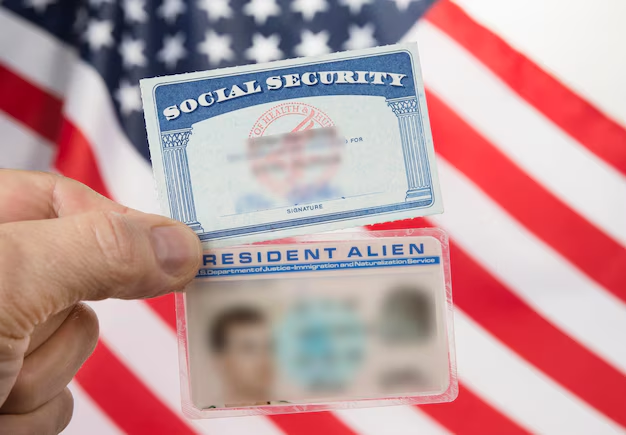Navigating Medicaid Eligibility for Green Card Holders: What You Need to Know
Understanding healthcare options as a green card holder in the United States can be overwhelming, and if Medicaid is on your list of potential resources, this guide will provide you with a comprehensive understanding of your eligibility and application process. Crafted without jargon and packed with practical insights, this article aims to demystify the intersection of green card residency and Medicaid eligibility.
🌟 Can Green Card Holders Qualify for Medicaid?
Green card holders are lawful permanent residents (LPRs) of the United States, and like other residents, they might be eligible for Medicaid. The catch, however, lies in meeting an array of criteria that differ from what's required of U.S. citizens.
Residency Requirement: Generally, LPRs must have lived in the U.S. for at least five years before they can qualify for Medicaid. This rule is in place to ensure that recent arrivals do not overwhelm the system intended to support low-income residents.
Income Guidelines: Like citizens, green card holders must meet specific income criteria to qualify for Medicaid. This is often determined as a percentage of the federal poverty level (FPL), which varies by household size and state.
Other Qualifying Conditions: Some groups of immigrants, including certain refugees, asylees, and lawful residents under specific humanitarian statuses, may be eligible for Medicaid sooner than the typical five-year wait.
🏥 Key Factors Affecting Eligibility
Length of Residency
The five-year residency rule is pivotal in Medicaid eligibility for LPRs. However, certain exceptions can apply, especially for individuals considered "qualified immigrants." Understanding your specific status in this context is crucial, as it can open doors to earlier benefits.
Income and Asset Limits
Medicaid's income limits are designed to assist low-income individuals and families. This threshold is set relative to the federal poverty level (FPL), which is adjusted annually. Several factors can complicate this calculation, such as household size and state of residence, as different states extend different benefit packages.
Special Considerations for Vulnerable Populations
Some categories of non-citizens might be eligible for Medicaid without the five-year wait due to their vulnerable status:
- Refugees and asylees
- Victims of trafficking
- Certain members of the U.S. military and their dependents
Each state may have additional criteria or more generous coverage terms, making it essential for green card holders to understand the specifics of where they reside.
🚦 Navigating the Application Process
Gathering Required Documentation
To apply for Medicaid, green card holders need to prepare documentation demonstrating:
- Proof of LPR status: Green card or other immigration documents.
- U.S. residency proofs: Utility bills, lease agreements, or official correspondence.
- Income verification: Recent pay stubs, tax returns, or employer statements.
Ensuring you have these documents in order can significantly streamline the application process.
Understanding State-specific Nuances
Medicaid is a federally and state-funded program, leading to variations in how it's implemented across states. It's crucial to be familiar with your state's rules, available benefits, and the application process.
- Check with your state's Medicaid office: State websites often provide detailed instructions tailored to their processes.
- Online Tools and Resources: Tools like online eligibility calculators can offer a preliminary assessment of potential eligibility.
- Reach out for assistance: Community organizations and legal aid societies often provide resources and help for immigrant communities navigating Medicaid.
🌐 Exploring Additional Health Coverage Options
For green card holders who don't qualify for Medicaid or are in the waiting period, there are alternative health coverage pathways:
Affordable Care Act (ACA) Marketplaces
The ACA offers marketplace insurance plans that can provide comprehensive coverage. Green card holders are eligible to enroll in these plans regardless of when they obtained their residency. Depending on income levels, you might qualify for subsidies that can offset premiums.
CHIP (Children’s Health Insurance Program)
LPR children may have different eligibility requirements under CHIP, offering a viable alternative for families unable to access Medicaid.
Employer-sponsored Insurance
If employed, explore the extent of healthcare coverage your employer provides. This option might bridge the gap until you become Medicaid-eligible.
Community Health Centers
Federally-waived community health centers offer services regardless of a patient's ability to pay and can provide accessible healthcare during periods of coverage transition.
📋 Summary Checklist for Green Card Holders Considering Medicaid
Here's a quick reference to keep you on track:
- 🗓️ Five-Year Residency Rule: Ensure you meet the minimum residency requirement or qualify under exceptions.
- 💵 Income Verification: Check if your income aligns with the state's guidelines.
- 📄 Documentation Preparation: Gather necessary documents like proof of residency and income.
- 📍 State-specific Inquiries: Connect with your state's Medicaid office for precise rules and guidance.
- 🏥 Alternative Coverage Plans: Consider ACA plans, CHIP, community health centers, and employer-sponsored insurance if Medicaid timeframes become barriers.
A Final Word on Healthcare Access for Green Card Holders
Navigating healthcare options as a green card holder can feel like a daunting task, but understanding your eligibility under Medicaid and exploring alternative insurance opportunities ensures you're well-prepared. Remember, each state may have subtle differences in its programs, making personalized research invaluable. By knowing the system, you empower yourself to secure the healthcare you and your loved ones need, turning uncertainty into proactive planning.
In the complex tapestry of U.S. healthcare, knowledge equips you not just to survive but to thrive. Always seek credible information and expert advice tailored to your unique circumstances, and you'll be well on your way to making informed healthcare choices.

Related Topics
- A/r Medicaid
- Am I Eligible For Medicaid
- Am I Qualified For Medicaid
- Are Illegal Aliens Eligible For Medicaid
- Are Illegal Immigrants Eligible For Medicaid
- Are Medicaid Payments Frozen
- Are Medicare And Medicaid Social Insurance
- Are My Children Eligible For Medicaid
- Are Trusts Exempted From Ssi And Medicaid
- Are Undocumented Immigrants Eligible For Medicaid
